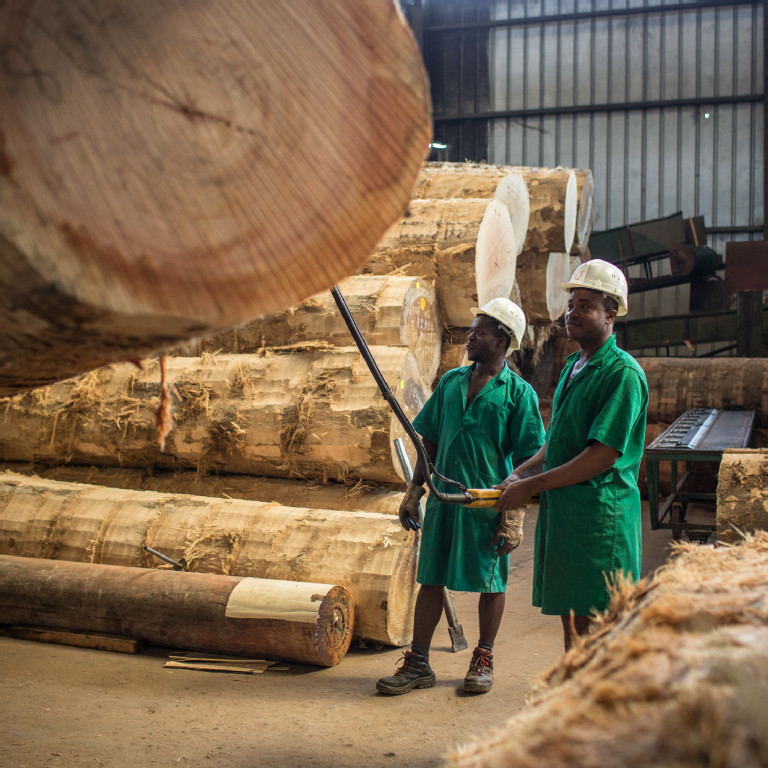The Facility Investing for Employment (IFE) of KfW Development Bank is part of the Special Initiative "Decent Work for a Just Transition" of the German Federal Ministry for Economic Cooperation and Development (BMZ). The Special Initiative operates under the brand Invest for Jobs. The development objective is to work together with companies to create good jobs and to improve working conditions and social protection in its eight African partner countries: Côte d’Ivoire, Egypt, Ethiopia, Ghana, Morocco, Rwanda, Senegal and Tunisia.
IFE is currently co-financing more than 50 investment projects (as of December 2025) in all eight partner countries of the special initiative. Many of the projects are at an advanced stage and have already created a significant number of jobs. The projects co-financed by IFE can be found here.
 KfW-Bildarchiv / photothek.net
KfW-Bildarchiv / photothek.net
The Facility IFE supports investment projects that create a significant number of jobs that give access to social protection programmes. With its support, IFE removes investment barriers that prevent the creation of good jobs in the private sector.
Private companies as well as public and non-profit organisations can submit investment proposals.
The Facility awards grants ranging from EUR 650,000 to EUR 10 million per project for the job creation component. Preference will be given to projects that combine job creation with social protection measures.
The grant amount per job created must not exceed EUR 10,000. Projects with a better grant / job ratio have better chances for being selected. The Facility only finances mature projects that have not yet started and that offer reasonable chances for being operationally and financially sustainable.
Applicants must provide own financial contributions towards the overall project expenditure in the required proportion. The specific grant amount awarded depends on the financial capabilities of the applicant and the project category. Applicants must prove that all reasonable finance sources have been explored, but a funding gap remains. The grants are disbursed during the investment phase of the project and in accordance with achieved milestones.
Please go to Background and Context for more information about IFE.
From 2020 to 2022 IFE implemented a Corona Response Programme on behalf of the German Federal Government. This programme has now ended.